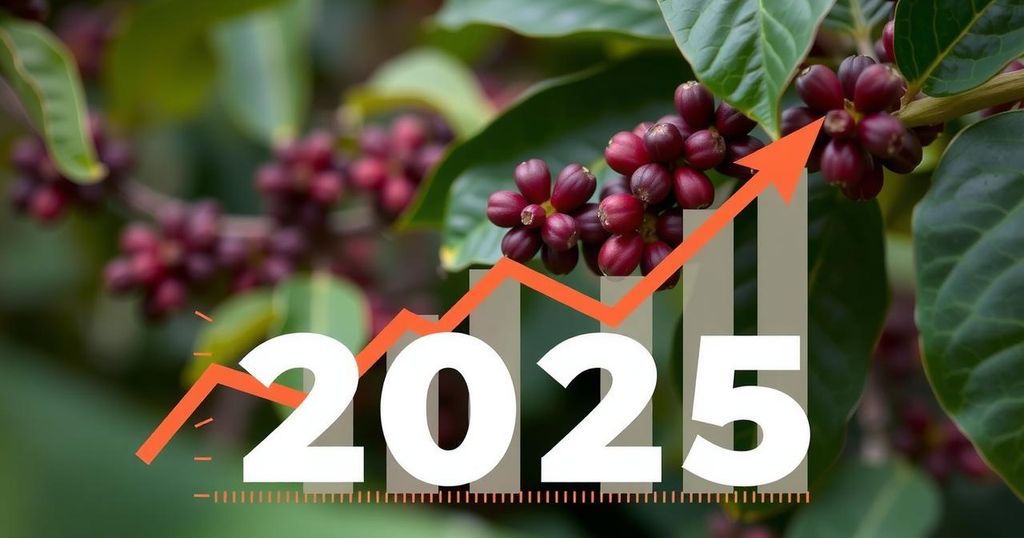Projected Coffee Price Increases Linked to Climate Change Challenges
Coffee prices are projected to increase further as climate change severely impacts production, particularly in Brazil, which is experiencing its worst drought in 70 years. The cost of arabica beans has surged to $3.50 per pound due to these factors, with similar challenges threatening other agricultural products as well. The ongoing difficulties in maintaining adequate coffee supply are anticipated to result in persistent production deficits.
The rising costs of coffee have become a significant concern, with projections indicating that prices may continue to climb as we approach 2025. This increase is primarily attributed to climate change, which has had a profound impact on coffee production, particularly affecting arabica bean supply. Currently, prices for arabica beans have surged to $3.50 per pound, reflecting a staggering 70% rise compared to the previous year, highlighting a troubling trend reminiscent of historical events that severely affected coffee crop yields.
The adverse effects of climate change, especially the severe drought in key coffee-producing regions such as Brazil, are notable contributors to these rising costs. David Ortega, a renowned professor of food economics and policy at Michigan State University, emphasized that “significant drought in some of the key coffee-growing areas of the world, places like Brazil” is a critical factor in the current crisis. The Brazilian drought, which is reported to be the most severe in 70 years, poses significant risks as Brazil is the largest global exporter of coffee, thus impacting prices directly for consumers.
With arabica beans constituting approximately 60% of the world’s coffee production, the implications of these price increases are widespread across the coffee market. Similarly, other coffee species such as robusta, predominantly grown in Vietnam, are also challenged by environmental stressors resulting from climate change. The ongoing droughts in these regions not only threaten coffee supply but also contribute to the rising expenses faced by consumers at grocery stores.
Climate change impacts far exceed those experienced by coffee alone, as evidenced by challenges faced in other industries. For instance, the beer industry is facing anticipated changes in hops quality and availability, thereby increasing production costs. Likewise, winemaking is threatened by hotter temperatures affecting grape viability. The struggle to produce enough coffee to meet soaring global demand directly links to escalating prices, which are foreseen to continue in the years to come due to impending production deficits. As indicated, Brazil’s coffee growers are anticipated to face shortages for the fifth consecutive year, leading to a forecast of millions of bags less coffee in 2024 and beyond.
The rise in coffee prices can be traced back to climate change, which has been affecting agricultural production on a global scale. In particular, key coffee-growing regions are experiencing severe droughts and adverse weather conditions that compromise crop yields. The situation is critical in Brazil, the largest coffee exporter, where prolonged droughts have resulted in significant production shortfalls. The impact of these environmental challenges not only influences the availability of coffee beans but also the economic landscape surrounding coffee pricing, making it critical to explore the correlation between climate conditions and agricultural outputs.
The impending rise in coffee prices is a multifaceted issue primarily driven by the adverse effects of climate change. As severe droughts in critical coffee-producing regions reduce supply, particularly in Brazil, consumers can expect continued increases in coffee costs. The implications extend beyond coffee, affecting other agricultural products like hops and wine grapes, showcasing a broader concern regarding global food supply amid changing climate patterns. Urgent action is needed to address these climatic challenges to stabilize future coffee production and prices.
Original Source: www.thedailymeal.com




Post Comment